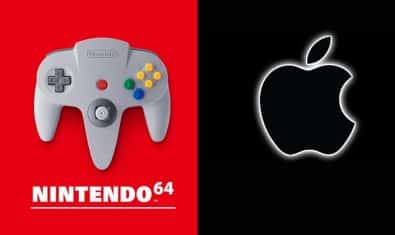To increase the usage of the Internet of Things (IoT) in Pakistan, Pakistan Telecommunication Authority (PTA) has started accepting applications for the “Low Power Wide Area Network (LPWAN)” license.
This license shall be valid for a term of 5 (five) years. Applicants for the license will have to provide a letter of application and CNIC along with other relevant details/documents. The complete list of information and requirements is available here.
This is in pursuance of the Rolling Spectrum Strategy 2020-2023 issued by the Government of Pakistan to facilitate the introduction of futuristic technologies through automation in different industries.
PTA had issued a “regulatory framework for Short Range Devices (SRD) and terrestrial Internet of Things (IoT) services.”
The objective of this regulatory framework is to provide a regulatory guideline for the industry, to enable the development of the IoT eco-system in Pakistan either through unlicensed/shared bands, that may be used for Low Power Wide Area Networks (LPWAN) on a non-interference and non-protection basis, or through exclusively assigned /licensed frequency bands. However, the main emphasis of this framework is to elaborate on the requirements and guidelines for the provisioning of IoT services in shared frequency bands.
The SRD and IoT licensing framework for service provisioning is classified according to the frequency bands involved for such services provisioning, stated as below:
- Services provided through licensed/exclusively assigned frequency bands: This category includes Cellular Mobile Operators (CMOs) as well as other such licensees who have an exclusive assignment of frequencies by PTA/FAB.
- Services provided through shared frequency bands. It includes the following categories
- Services provided through Short Range Devices-Bands (SRD-bands) and/or Ultra Wide Bands (UWB).
- Services provided through shared bands for Long Range IoT under the new category of LPWAN License to be issued by PTA.
The following criteria shall be used for IoT services provisioning:
- CMOs and other Local Access Providers may provide IoT services through their exclusively assigned frequencies under respective license conditions and/or any other conditions as specified by the Authority from time to time.
- Exclusive assignment(s) for IoT in any other frequency band shall be dealt with on a case-to-case basis by PTA/FAB.
- To this effect, a request for assignment of a specific frequency channel/spot on the prescribed form shall be submitted to PTA for onward submission to FAB for processing as per procedure in vogue (per RBS licensing regime or any other regime as specified by Authority from time to time). However, applicants would be encouraged to consider the unlicensed band.
- Mission Critical Services shall be offered through exclusively assigned/licensed frequency bands under the terms and conditions of such license or any other determination/conditions as specified by the Authority from time to time.
The IoT Service Provisioning through Unlicensed Frequency Bands:
i. License Exempt Category IoT, SRD, and UWB devices using the shared spectrum bands identified in Annex A & B shall be license-exempted, subject to the following conditions:
a. All devices under this category shall comply with limits/parameters, allowed applications, general operating conditions, etc., as specified in Annex-A & B.
b. All devices under this category specified in Annex-A & B shall require type approval as per section 29 of the Act and Type Approval regulations issued by the Authority from time to time.
c. The IoT, SRD, and UWB devices shall be allowed only on a ‘Secondary, Non-interference, Non-Protection’ basis as well as shall not cause interference with other authorized radio communication services, and be able to tolerate any interference caused by other radio-communication services, electrical or electronic equipment.
d. The devices shall not be constructed with any external or readily accessible control, which permits the adjustment of its operation in a manner that is inconsistent with the specifications and limits as given in Annex A & B.
e. If any IoT, SRD, and UWB devices are found or reported to interfere with any primary service, the device operation must be stopped immediately.
f. UWB applications having the capability to cause harmful interference, in case of widespread deployments, shall be considered on case to case basis. Such applications shall be forwarded to FAB, and upon their approval, type approval shall be issued by the PTA.
The LPWAN License shall be issued by PTA to those applicants who are interested to provide IoT services through LPWAN bands and shall be treated under the CVAS licensing regime with the following conditions:
a. All licensees must comply with obligations with regard to clearance of cell sites as per the Standard Operating Procedure of PTA/FAB. In addition to SOP for BTS site clearance, the licensee shall follow “Protection from Health-Related Effects of Radio Base Station Antennas Regulation 2008,” and its amendment thereto, while installing and operating radio base station antennas.
b. Provide the IoT-specific connectivity in a given area of service (AoS), through the frequency bands, with strict compliance to respective power limits as defined by the Authority from time to time.
c. Shall use radio frequency on a Secondary basis, i.e., the networks operating in these bands shall not cause interference to other authorized primary radio communication services.
d. Shared/non-exclusive basis, i.e., the licensee of these networks shall not ask for any protection from interference caused by the current or future primary/secondary users and be able to tolerate any interference caused by other radio communication services, electrical or electronic equipment.
e. In case of interference to primary services in the overlapping or adjacent bands, the users of such secondary frequency bands shall stop the use with immediate effect, under the direction of the Authority.
f. Shall cooperate with PTA and FAB in determining the cause of interference and resolution of same for protecting the primary user(s) through all technical means in order to ensure interference-free co-existence.
g. Shall comply with any future update(s) in the frequency plan and the related technical specifications as determined by PTA and FAB from time to time.
h. Shall transport the backend traffic generated through LPWAN network, to the cloud/ internet, or to servers geographically separated from LPWAN base station, through a PTA licensed Local Access Provider.
i. The applicant shall apply and pay applicable fees. The duration of a license shall be for five years, renewable for another term consistent with the policy of the federal government.
j. FAB may review the frequency bands for IoT and related technical parameters from time to time, in the light of international best practices, based on the demand and uptake of such services from the industry and recommendations of PTA/MoIT&T.

























